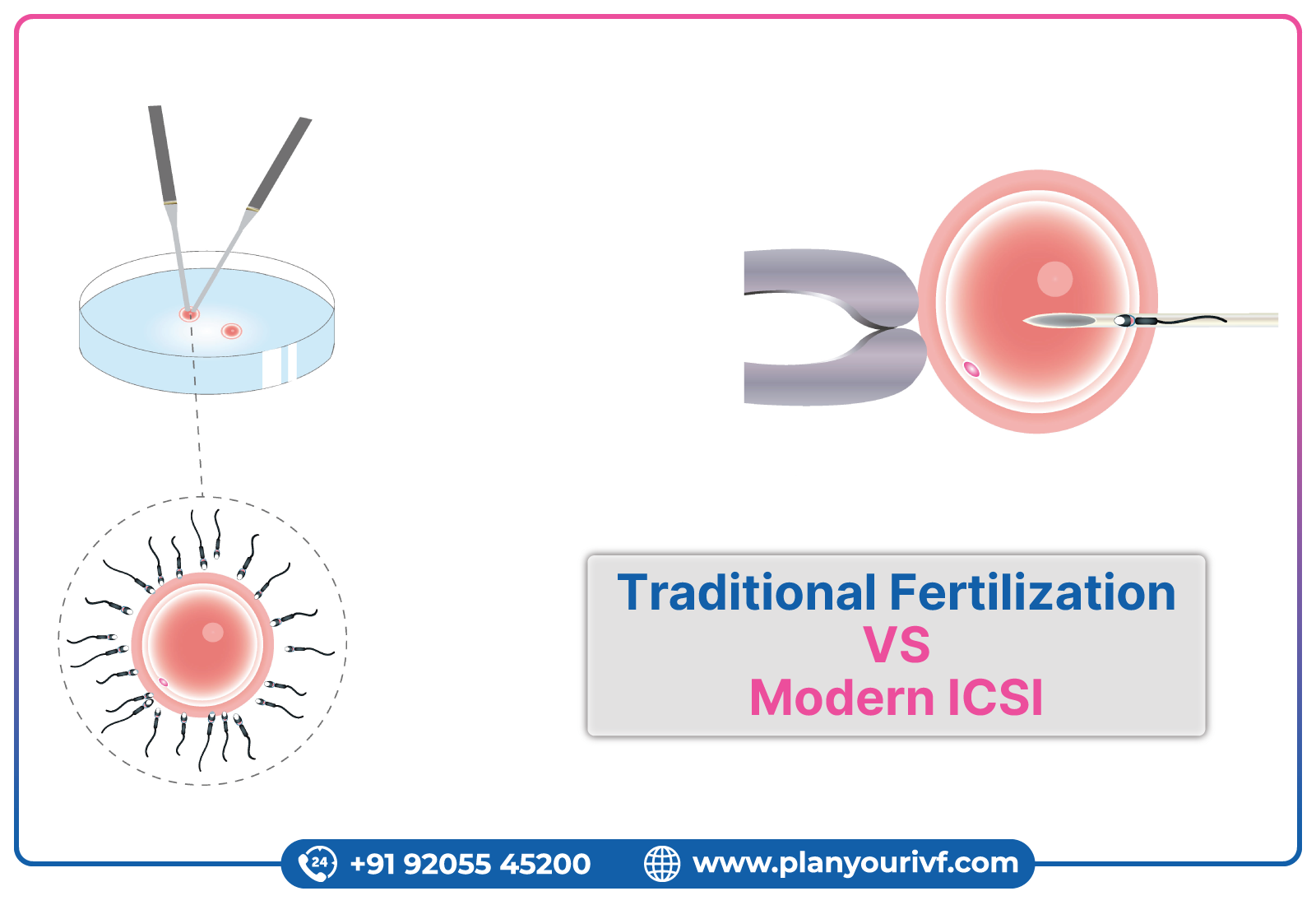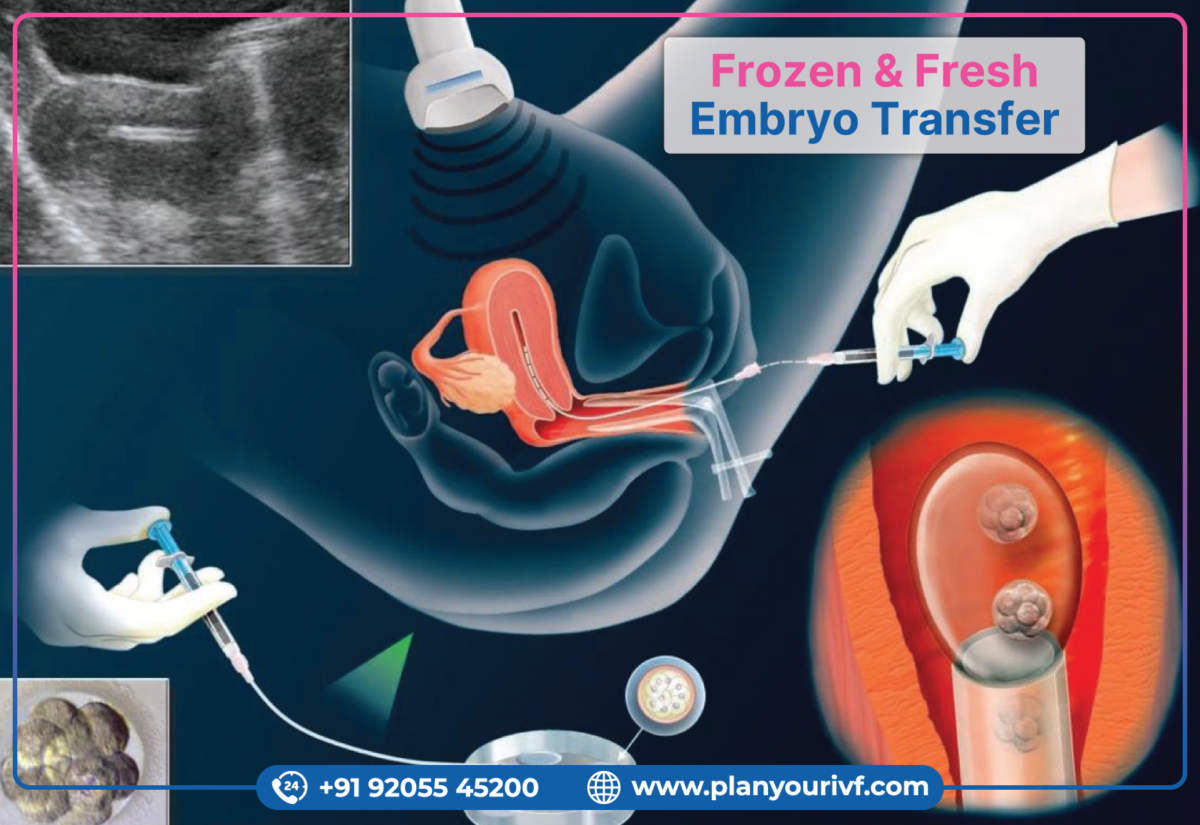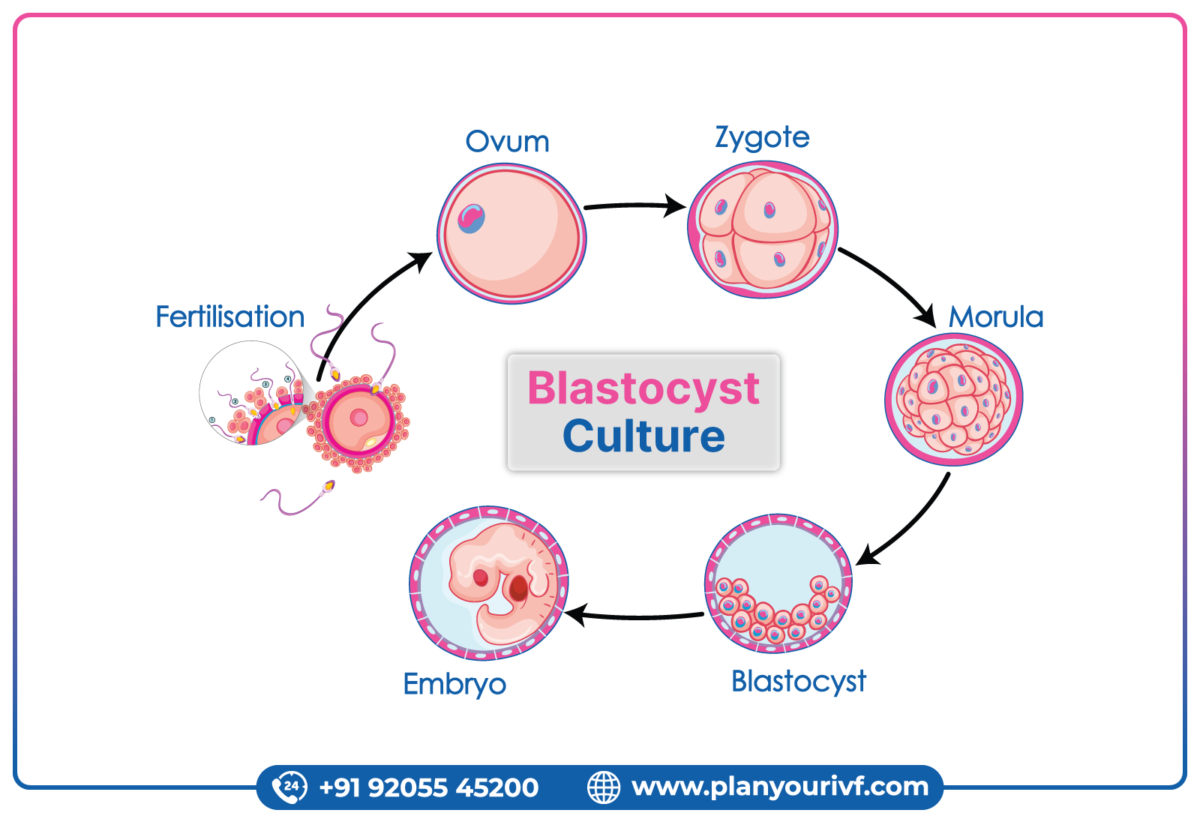Traditional Fertilization vs. Modern ICSI
Traditional Fertilization
Traditional fertilization, also known as conventional IVF (In Vitro Fertilization), involves mixing eggs retrieved from the woman with sperm in a laboratory dish and allowing fertilization to occur naturally. This method has been a mainstay in assisted reproduction for decades and remains a reliable option for many couples.
Benefits of Traditional ICSI:
- Proven Success: Traditional fertilization has a long history of success in helping couples achieve pregnancy, making it a trusted option in assisted reproduction.
- Simplicity: Traditional fertilization is a straightforward process, requiring minimal manipulation of the eggs and sperm.
- Accessibility: Many fertility clinics offer traditional fertilization as a standard procedure, making it widely accessible to couples seeking fertility treatment.
Modern ICSI
Intracytoplasmic Sperm Injection (ICSI) represents a modern approach to fertilization in assisted reproduction. With ICSI, a single sperm is directly injected into an egg using precise micro-manipulation techniques. This method is particularly useful in cases of male infertility or when previous fertilization attempts have failed. Modern ICSI techniques incorporate advancements in technology and laboratory procedures, enhancing precision and improving fertilization rates.
Benefits of Modern ICSI:
- Enhanced Success Rates: Modern ICSI techniques often result in higher fertilization rates and improved embryo quality, increasing the likelihood of successful pregnancy.
- Precision and Accuracy: Advanced micro-manipulation tools allow embryologists to perform ICSI with greater precision, ensuring optimal sperm-egg interaction.
- Customized Treatment: Modern ICSI allows for tailored treatment approaches, addressing individual patient needs and optimizing treatment outcomes.
Choosing Between Modern ICSI and Traditional Fertilization:
The choice between traditional fertilization and ICSI depends on various factors, including the underlying cause of infertility, the quality of the sperm, and the recommendations of the fertility specialist. While traditional fertilization is simpler and widely used, ICSI offers enhanced precision and success rates, particularly for couples facing male infertility issues.
In conclusion, both traditional fertilization and modern ICSI are valuable techniques in assisted reproduction, offering hope and opportunity for couples struggling with infertility to achieve their dream of parenthood.
Are you facing infertility problems?
We are here to help you.
Book your appointment today![wpforms id=”56″]
 +91-9205545200
+91-9205545200  info@planyourivf.com
info@planyourivf.com 



